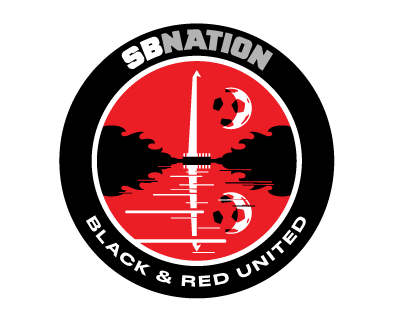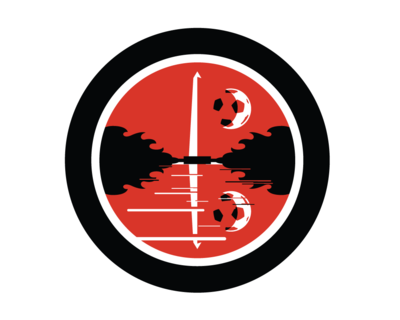In our continuing look at Major League Soccer's 2014 schedule, we have been examining the unbalanced games MLS Eastern Conference teams will play in the 2014 season. As has been the case for the past two seasons, teams in the East play 18 games in balanced home-and-away series against each of their nine conference rivals. In addition, each Eastern team plays a "third game" against seven of their nine conference rivals (which we broke down in a post last week), leaving only the nine games teams in the East play against teams from the West.
 Also in this Series
Also in this Series 
As we saw last week, this season's slate of "third games" has resulted in some competitive advantages emerging when we consider the strength of each team's "third game" opponents based on how they finished last year. Oddly enough, the New York Red Bulls (last season's Eastern Conference regular season champions and defending Supporters' Shield holders) appear to have the easiest set of "third games" as we enter the season. Here is the strength of the "third game" schedule for Eastern teams as we enter the 2014 season (from most difficult to easiest):
2. Toronto FC
3. D.C. United
4. Chicago Fire
7. Sporting Kansas City (tied)
7. New England Revolution (tied)
10. New York Red Bulls
Now let's take a look at the inter-conference games teams from the East will play against Western Conference teams. Unlike the "third games" in which each team plays a different group of opponents, for the inter-conference games, each team will play the exact same lineup of teams, namely the entire Western Conference. The only difference, then, is where each game is played--at home or on the road.
1. Let's start by looking at last year's Western Conference final standings. We will use each team's position at the end of last year as a measure of how strong they will be entering the 2014 season.
| 2013 Western Conference Position | Team | Total 2013 Points |
| 1 | Portland Timbers | 57 |
| 2 | Real Salt Lake | 56 |
| 3 | LA Galaxy | 53 |
| 4 | Seattle Sounders | 52 |
| 5 | Colorado Rapids | 51 |
| 6 | San Jose Earthquakes | 51 |
| 7 | Vancouver Whitecaps | 48 |
| 8 | FC Dallas | 44 |
| 9 | Chivas USA | 26 |
2. Now let's look at the Eastern Conference inter-conference schedule against the returning 2013 playoff teams from the West.
| Portland Timbers | Real Salt Lake | LA Galaxy | Seattle Sounders | Colorado Rapids | |
| New York Red Bulls | Home, 24 May | Away, 30 Jul | Away, 28 Sep | Home, 20 Sep | Home, 15 Mar |
| Sporting Kansas City | Away, 27 Jun | Home, 5 Apr | Home, 19 Jul | Away, 8 Mar | Away, 29 Mar |
| New England Revolution | Home, 16 Aug | Away, 4 Jul | Away, 16 Jul | Home, 11 May | Home, 30 Jul |
| Houston Dynamo | Home, 27 Apr | Home, 11 May | Home, 17 May | Away, 10 Aug | Away, 1 Jun |
| Montreal Impact | Home, 27 Jul | Away, 24 Jul | Home, 10 Sep | Home, 22 Mar | Away, 24 May |
| Chicago Fire | Away, 16 Mar | Home, 3 May | Home, 1 Jun | Home, 7 Jun | Away, 4 Jun |
| Philadelphia Union | Away, 8 Mar | Home, 12 Apr | Away, 25 May | Away, 3 May | Home, 12 Jul |
| Columbus Crew | Away, 17 May | Home, 4 Jun | Home, 16 Aug | Away, 29 Mar | Away, 4 Jul |
| Toronto FC | Home, 27 Sep | Away, 29 Mar | Away, 4 Oct | Away, 15 Mar | Home, 12 Apr |
| D.C. United | Away, 3 May | Away, 9 Aug | Away, 15 Mar | Home, 28 Jun | Home, 17 Aug |
3. And here is the inter-conference schedule for games against the returning non-playoff teams from the Western Conference.
| San Jose Earthquakes | Vancouver Whitecaps | FC Dallas | Chivas USA | |
| New York Red Bulls | Home, 19 Jul | Away, 8 Mar | Away, 4 May | Home, 30 Mar |
| Sporting Kansas City | Home, 22 Mar | Away, 10 Aug | Home, 15 Mar | Away, 13 Sep |
| New England Revolution | Away, 29 Mar | Home, 22 Mar | Away, 19 Jul | Home, 23 Aug |
| Houston Dynamo | Away, 25 May | Away, 29 Mar | Home, 5 Apr | Away, 3 May |
| Montreal Impact | Home, 20 Sep | Away, 25 Jun | Away, 8 Mar | Away, 5 Jul |
| Chicago Fire | Away, 23 Jul | Home, 30 Jul | Home, 30 Aug | Away, 9 Mar |
| Philadelphia Union | Home, 24 Aug | Home, 7 Jun | Away, 4 Jul | Away, 31 May |
| Columbus Crew | Away, 13 Apr | Home, 10 May | Home, 28 Jun | Home, 7 Sep |
| Toronto FC | Home, 7 Jun | Home, 16 Jul | Away, 19 Apr | Home, 21 Sep |
| D.C. United | Away, 11 Jul | Away, 6 Sep | Home, 26 Apr | Home, 20 Jul |
4. So, do any competitive advantages emerge from the inter-conference schedule? For this determination, we have to define what constitutes a favorable inter-conference schedule, and what is an unfavorable schedule. To do this, we will say it is more advantageous for an Eastern Conference team to face good Western teams at home rather than on the road. Similarly, it's better to face weaker Western teams on the road than at home. One could make an argument this is exactly backwards and it is better to play weak teams at home to pile up points when teams have the natural home-field advantage which permeates MLS, and teams might as well go ahead and play good teams on the road since getting a result away from home is so difficult. But, we'll go with the former explanation, arguing teams want to play good opponents at the place they are most likely to get a result--at home.
Using each Western Conference team's finishing "position" within their conference last year, we can determine which Eastern team is playing the toughest returning Western teams at home and the weakest returning Western teams on the road. The table below is sorted based on the average "position" of each Eastern team's inter-conference opponents at home. The lower the number, the more difficult the slate of opponents at home--and thus the more favorable the schedule. For example, D.C. United plays inter-conference home games against #4 Seattle, #5 Colorado, #8 Dallas, and #9 Chivas. If you add all those "positions" up of their home inter-conference opponents, D.C. United has a home strength of schedule for its games against the Western Conference of 26. When averaged, they have an average difficulty per home game of 6.5. This means they are playing the easiest group of Western Conference teams at home of any Eastern team (and this makes it the most unfavorable inter-conference schedule of any Eastern team). Similarly, D.C. United has an average difficulty per away game of 3.8, which means they have the hardest schedule of road inter-conference games of any Eastern team as we enter the 2014 season. Again, this means the Black-and-Red have the least favorable slate of inter-conference games against the Western Conference.
| Home Difficulty | Total Home Games | Home Difficulty/Game | Away Difficulty | Total Away Games | Away Difficulty/Game | |
| D.C. United | 26 | 4 | 6.5 | 19 | 5 | 3.8 |
| Columbus Crew | 29 | 5 | 5.8 | 16 | 4 | 4.0 |
| Toronto FC | 28 | 5 | 5.6 | 17 | 4 | 4.3 |
| New England Revolution | 26 | 5 | 5.2 | 19 | 4 | 4.8 |
| Philadelphia Union | 20 | 4 | 5.0 | 25 | 5 | 5.0 |
| New York Red Bulls | 25 | 5 | 5.0 | 20 | 4 | 5.0 |
| Chicago Fire | 24 | 5 | 4.8 | 21 | 4 | 5.3 |
| Sporting Kansas City | 19 | 4 | 4.8 | 26 | 5 | 5.2 |
| Montreal Impact | 14 | 4 | 3.5 | 31 | 5 | 6.2 |
| Houston Dynamo | 14 | 4 | 3.5 | 31 | 5 | 6.2 |
We can now see Houston and Montreal have the most favorable slate of inter-conference games, and D.C. United has the most difficult slate, facing the top three returning Western Conference teams on the road (the Black-and-Red are the only team having to do this).
5. Do the inter-conference games balance out the disparities in the "third game" schedule we looked at last week? This is an interesting question. Last year, we found the combination of the "third games" and inter-conference games balanced out any advantages emerging from these unbalanced games. At the time, we didn't know if this was due to expert scheduling by MLS HQ or just dumb luck. Now with another year under our belt, it appears it was just luck at work last season balancing the schedule, because we don't see the same balance this year.
For this season, let's take a look at the combined difficulty of each Eastern Conference team's "third game" schedule and inter-conference schedule. Using the rank order of the most difficult to least difficult "third game" slates we looked at last week, and the rank order of the least favorable to most favorable inter-conference schedule we determined above, the total difficulty of the unbalanced schedule for each Eastern team is listed below using this back-of-the-envelope method (the lower the number, the more difficult the unbalanced schedule).
| "Third Game" Schedule Difficulty | Inter-Conference Schedule Difficulty | Total Difficulty | |
| D.C. United | 3 | 1 | 4 |
| Toronto FC | 2 | 3 | 5 |
| Philadelphia Union | 1 | 5 | 6 |
| Columbus Crew | 5 | 2 | 7 |
| New England Revolution | 7 | 4 | 11 |
| Chicago Fire | 4 | 7 | 11 |
| Sporting Kansas City | 7 | 7 | 14 |
| New York Red Bulls | 10 | 5 | 15 |
| Montreal Impact | 6 | 9 | 15 |
| Houston Dynamo | 9 | 9 | 18 |
For D.C. United, the combination of a moderately difficult "third game" schedule and the least favorable inter-conference schedule means our hometown team takes the honor of having the most difficult Eastern Conference unbalanced schedule entering 2014. And, with the exception of New England's and Chicago's unbalanced schedule, it doesn't appear MLS HQ is actively managing the unbalanced portion of the MLS schedule to ensure it is as balanced as possible.
What's your take on the Eastern Conference's inter-conference schedule? How do you think D.C. United will do with games at Portland, at RSL, at LA, at San Jose, and at Vancouver (that's four cross-continental trips to the Pacific Coast)?

